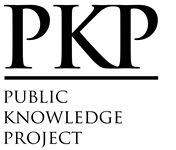Demonstrating How Urban Morphology Matters: Reaching Beyond the Geometry of Building Design, Construction Systems and Occupational Behaviours and Towards Broader Context-Specific Transformations
Abstract
Recent studies of urban morphology, suggest the design, layout and texture of district centres, neighbourhoods and buildings have as much a bearing on levels of energy consumption and rates of carbon emission as either buildings or their occupation. They suggest urban morphology matters and both the design, layout and texture of district centres, neighbourhoods and buildings are as significant in setting levels of energy consumption and rates of carbon emission as the occupation and use of such structures. This paper aims to reiterate this message and demonstrate how urban morphology does matter. Not only with respect to the geometry (i.e. surface and volume of the building design typologies), construction systems, or occupational behaviours, that such studies drawn particular attention to, but with regards to a matter which they have hitherto overlooked. That is with regards to the potential which the planning, (re)development, design and layout of district centres and their neighbourhoods as context-specific transformations have, to not only lower levels of energy consumption and rates carbon emission, but mitigate the climate change associated with the occupation and use of buildings. In meeting this aim and demonstrating how urban morphology does matter, the paper shall draw upon the experiences of a transformation taking place in the London Borough of Sutton known as the Hackbridge project: a mass retrofit proposal designed as a sustainable suburb with distinct centres, neighbourhoods and buildings, laid out and contextualised as an energy efficient-low carbon zone.
Full Text:
PDFDOI: https://doi.org/10.5296/emsd.v2i2.4307
Refbacks
- There are currently no refbacks.
Copyright (c) 2013 Mark Deakin, Alasdair Reid, Miss Fiona Campbell

This work is licensed under a Creative Commons Attribution 4.0 International License.
Environmental Management and Sustainable Development ISSN 2164-7682
Copyright © Macrothink Institute
To make sure that you can receive messages from us, please add the 'macrothink.org' domain to your e-mail 'safe list'. If you do not receive e-mail in your 'inbox', check your 'bulk mail' or 'junk mail' folders.
------------------------------------------------------------------------------------------------------------------------------------------------------------------------
